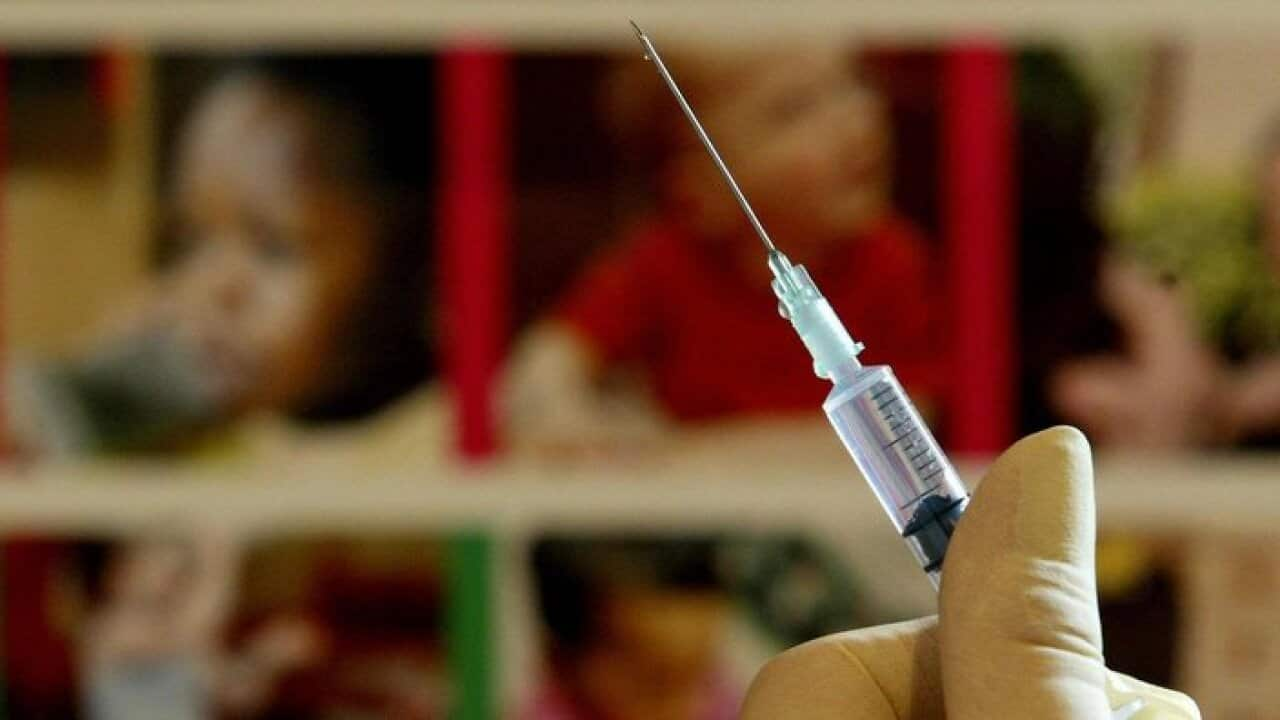The number of children in Australia who are fully immunised has increased over the last year reaching 94 per cent, according to the Federal Government. 200,000 children who had previously not met vaccination requirements, now do so.
In 2016, the Federal Government introduced its 'No Jab, No Pay' policy which denies social security payments to parents whose children are not vaccinated.
General Manager within the Department of Human Services (DHS), Hank Jongen explains.
“The Australian Government has taken the view that immunisation is an important issue and therefore has passed legislation that requires all children under 20 years of age to be immunised in order to be eligible for a range of family payments. Those key payments are really Family Tax Benefit A, the Family Tax Benefit A Supplement, which is paid at the end of each financial year. And of course, the other important payment is the Child Care Benefit.”
The parents of 142,000 children were denied family entitlements because they failed to prove their children had been vaccinated. The National Immunisation Program states vaccination is free to young Australians. However, people on temporary visas are not eligible to be part of the Medicare system and need to pay out of pocket. Executive Director of the Multicultural Centre for Women’s Health Adele Murdolo identifies a clear disincentive for some migrant parents.
“And that’s a big group of migrants, people who are here in Australia on temporary visas, because generally their health insurance may not cover immunisation. Some might, but it’s not across the board. And that can cost up to $800 or even more.”
The National Immunisation Program states vaccination is free to young Australians. However, people on temporary visas are not eligible to be part of the Medicare system and need to pay out of pocket.
The scheme is available in Victoria to parents on temporary visas, but doesn’t extend to other states. Immunisation history is checked by the Department of Human Services on the Australian Immunisation Register. DHS’s Hank Jongen says children who are enrolled in Medicare are automatically included, while those who are not eligible will still be added.
“In some instances if a child is not eligible to enrol in Medicare, they will be added when an Australian GP or a Vaccination Provider sends the details of any vaccination to that Immunisation Register, that’s an automatic process.”
Migrants from countries with a history of civil or political unrest often miss the opportunity of getting full immunisation. Adele Murdolo says they face difficulties accessing the relevant services after arrival.
“Of course it’s very difficult to find out what you need to do. It’s hard for new migrants to get information when they first come to Australia. So I guess what that means is that a lot of people might miss out on the information and on being able to access immunisation.”
DHS’s Hank Jongen emphasises the importance of bringing evidence of vaccination records.
“We will accept evidence that your child has been vaccinated overseas, but it is important that you provide us with that evidence. You either can give it to your GP or an Australian Vaccination Provider, which is usually through Community Health Centres.”
Migrants from countries with a history of civil or political unrest often miss the opportunity of getting full immunisation.
Both policies and vaccination rates still vary across States and Territories. As a result, experts are calling for a National Immunisation Strategy. In an Australian-first study, research conducted by the University of New South Wales has revealed a need for national policy. Its lead author, Dr Abela Mahimbo says we need to improve our service delivery for refugees.
“This study was one of its kind, because as I did my literature search there was a lack of policy paper that had analysed the immunisation specific policies for refugees. So what I found from my paper was that there was a lack of consistency across the states and territories. And therefore it really highlighted the need for a national strategy.”
Australia doesn't have a centralised screening model. For example, only New South Wales, the Northern Territory and Western Australia have developed refugee-specific policies. Dr Mahimbo says a national health policy would lead to consistency across the country.
“I think what would really help in Australia is having a policy that people can actually look up to as a directive in terms of what they are supposed to do. The key stake holders, they don’t know what to do, they don’t know who’s responsible for catching up vaccines for refugees.”
Adele Murdolo from the Multicultural Centre for Women’s Health welcomes the idea.
“I think that would be a very good initiative, because it could build in the way that we are going to be communicating with people in the community to make sure that they know how to get their immunisation. And that would solve that problem of lack of awareness in the community. There are quite a few things that it would really benefit from having a coordinated strategy across Australia.”
Australia doesn't have a centralised screening model. Experts are calling for a National Immunisation Strategy.
Dr Mahimbo sees Australia on a good path and considers this optimistic.
“I am hopeful. The fact that they just recently funded refugees, for me that was a very good step, so I’m really hopeful that with time things are going to improve for this particular population.”
Find out more about. For support and services for people from culturally and linguistically diverse backgrounds call the Multilingual Phone Service on 131 202.




